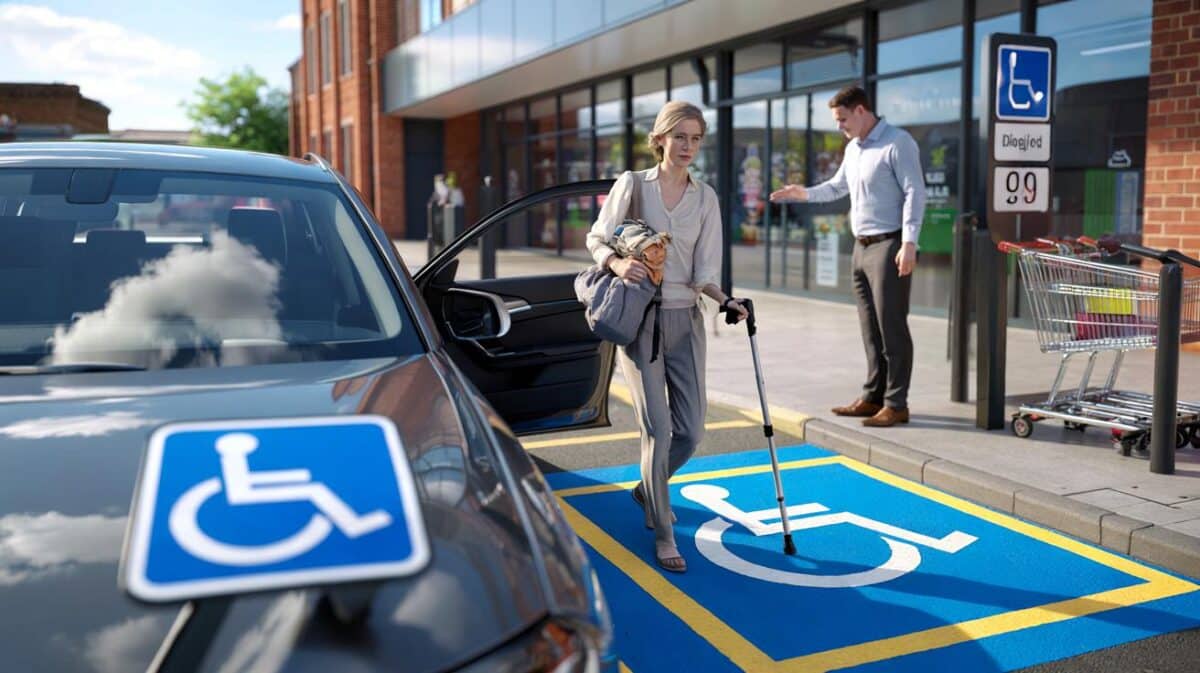The aim is to catch fraud faster, with fewer awkward letters and long interviews. Yet one benefit will sit outside the dragnet — and that detail matters to millions.
On a drizzly Tuesday in a high street bank, I watched a man flick through his mini-statements like they were lottery tickets. He wasn’t checking for a win, just proof — a rent payment that landed, a supermarket shop that didn’t tip him over. A few seats down, a woman opened the DWP app, paused, then shut it as if it might bite. We’ve all had that moment when private money stuff suddenly feels public, like someone’s reading over your shoulder. The government’s fraud crackdown has turned that feeling into a national conversation. One quietly crucial carve‑out changes it.
The carve‑out that changes the tone
The government’s new data powers let the DWP ask banks for bulk checks on accounts related to certain benefits. The idea is to flag patterns — high balances, overseas spending, long dormant periods — before an investigator ever calls. Ministers say it’s targeted, not a free-for-all. They’re pitching it as a digital bouncer at the door, not a snoop in your wallet.
Here’s the twist: Personal Independence Payment (PIP) is set to be excluded from those proactive bank sweeps. PIP isn’t means-tested, it’s about how a disability or health condition affects daily life, not what’s in your savings pot. That matters at human scale. A PIP claimant can buy a wheelchair-friendly car, pay for extra heating, or save towards home adaptations, without those transactions feeding an algorithm.
It also matters to trust. The DWP needs to recover billions lost to fraud and error, while not spooking people who play by the rules. Excluding PIP helps draw a line around the most private parts of a person’s life — their disability costs — and keeps the crackdown focused on benefits where bank balances actually change eligibility. Think Universal Credit, Pension Credit, Housing Benefit. PIP sits outside that logic on purpose.
What this means for you, right now
If you get PIP, your day‑to‑day banking won’t be subject to these automated sweeps. You still have to report changes in your condition and keep your records, but the new account-monitoring dragnet isn’t aimed at you. That single boundary lowers the temperature and protects the principle: you don’t have to be poor to need disability support. That simple truth is easy to forget when headlines heat up.
Take a common scenario. A working-age couple share a joint account. One partner gets Universal Credit, the other receives PIP. Under the new powers, banks may be asked to run checks linked to the UC claim — looking for red flags like consistently high balances above capital limits — yet PIP remains outside the scope. In practice, that means the presence of PIP in the household shouldn’t be what triggers scrutiny. The system is meant to look at eligibility factors for means-tested benefits, not cast shadows over disability support.
There’s logic behind the split. Means-tested benefits change when your savings or circumstances change. PIP doesn’t. So the data sweep tries to detect things that would actually move the dial: a pot of savings over £16,000 for Universal Credit, say, or patterns consistent with long overseas stays. Excluding PIP reduces noise, fewer false alarms, and less stress. Let’s be honest: nobody actually does that every day. Lots of people don’t download monthly statements or scrutinise every payment. The carve‑out won’t fix everything, but it keeps the lens sharper.
Keep your paperwork calm and your footing steady
Here’s a simple method that helps, especially if you’re on a mix of benefits. Keep your benefit payments flowing into an account that’s easy to read at a glance. Label online transfers clearly, take a monthly screenshot, and file it in one folder. If your circumstances change — new job, savings gift, moving in with a partner — update the benefit that’s affected by money rules. Leave PIP updates to health changes only. It’s cleaner, quicker, less anxiety.
Common errors start small. A holiday runs long, a savings gift sits unmentioned, a joint account blurs who paid what. The fix is boring admin, and that’s the point. Write a one-line note for each change and clip it to your evidence: date, what changed, which benefit it touches. If your mind goes blank in phone calls, keep a notepad by the kettle and jot three bullet points before you dial. It’s not neat, it’s human.
“I don’t want my weekly shop to be treated like a red flag.” That fear crops up in community centres and on buses, in whispers and WhatsApp chats.
Bank checks are being aimed where money rules the award; PIP is not one of those awards.
Here’s a quick crib to keep handy:
- PIP is excluded from the DWP’s proactive bank sweeps.
- Means-tested benefits like Universal Credit may face checks for savings thresholds and residency patterns.
- Reporting duties stay the same: money changes for money-tested benefits; health changes for PIP.
Why the mood music matters
The way a rule is explained shapes how it lands. If the message is “everyone’s being watched”, people freeze up, stay silent, and small mistakes grow. If the message is “we’re checking where money rules apply”, people know where to look, what to tidy, and when to ask for help. Small difference, big outcome.
One more honest thing: most of us learn benefits rules the hard way, by getting something slightly wrong, then scrambling to fix it. The PIP exemption gives space for honesty, because it separates disability support from money-policing in a visible way. That trust can ripple outward — a calmer phone call, a clearer upload, a case closed faster.
All this is still a living, breathing policy area. Guidance will be refined, banks will tweak their filters, and the DWP will push for results. The best defence is simple clarity: keep your benefits distinct in your mind and on your statements, talk early when a change hits, and remember the carve‑out. The new bouncer isn’t at every door.
| Key point | Detail | Interest for readers |
|---|---|---|
| PIP excluded from bank sweeps | Disability benefit not tied to savings, so not in scope | Reassurance for claimants worried about privacy |
| Focus on means-tested awards | Checks look for savings thresholds and residency triggers | Helps households prioritise what to update first |
| Practical housekeeping works | Separate records, short notes, timely updates | Reduces stress and speeds up resolutions |
FAQ :
- Which benefit is excluded from the DWP’s bank account checks?PIP — Personal Independence Payment — is outside the proactive bank sweep powers.
- Will my State Pension be checked?The new data sweeps are framed around benefits where savings affect eligibility; current messaging points at means-tested awards, not State Pension.
- Can joint accounts be looked at if one person is on Universal Credit?Yes, where relevant to eligibility checks for the means-tested benefit, joint accounts may be part of the picture.
- Do I need to send bank statements to the DWP proactively?No — the bank sweeps are between banks and the DWP; you only provide evidence when asked during a review.
- What changes should I report if I get PIP?Changes to your health or how your condition affects daily living and mobility, not changes to savings or income.









